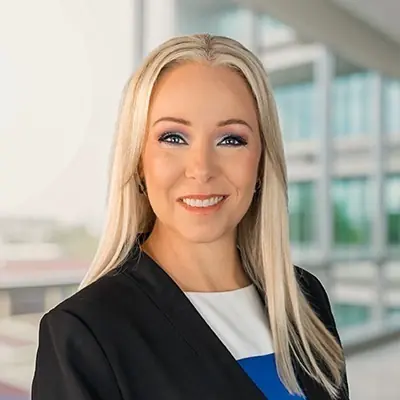Making surgery as comfortable and stress-free as possible for kids is one of our top priorities at Children’s Nebraska. Because children’s anesthesia needs are so different, the pediatric anesthesiologists at Children’s are specially trained and experienced to tailor anesthesia and pain management for children and teens whose bodies are still growing.
At Children’s, our pediatric anesthesiologists plan safe anesthesia for each child based on their weight, height, and type of surgery. Through special training and experience, our pediatric anesthesiologists provide safe care for infants and children with even the most difficult health issues.
The thought of anesthesia can be scary for both you and your child, but it is typically very safe. A pediatric anesthesiology professional will be with your child throughout the procedure, continuously monitoring their condition as the surgeon works.
Services We Offer
We know that anesthesia and pain management are big concerns when your child is having surgery. You and your child are in good hands. Our pediatric anesthesiology team offers:
- General anesthesia to keep your child safely asleep while surgeons are working
- Monitoring of vital signs and addressing changes in blood pressure, breathing, heart action, or wakefulness during surgery
- Pain relief after surgery to ease pain and anxiety
- Regional and local anesthesia, or numbing of areas of the body where a surgeon will be working
- Consultation with you and your child before surgery to answer questions and address concerns
What is anesthesiology?
Anesthesiology is a medical specialty focused on the safe management of anxiety and/or pain before, during, and after a medical procedure. This can include:
- Sedation that can help keep a patient calm and/or still during a procedure
- Regional pain control that numbs an area of the body
- General anesthesia that renders a patient unconscious and insensitive to pain during surgery
Physicians who specialize in anesthesiology are called anesthesiologists.
What is a pediatric anesthesiologist?
Pediatric anesthesiologists are physicians specializing in anesthesiology with a sole focus on the care of children from newborns to age 21. They choose to make pediatric care the core of their medical practice and receive advanced training and experience in the unique nature of medical and surgical needs of children.
What kind of training does a pediatric anesthesiologist receive?
In addition to the education and training all anesthesiologists receive, pediatric anesthesiologists complete at least one additional year of specialized training in the proper use of anesthesia in the care of infants and children. Pediatric anesthesiologists complete:
- At least 4 years of medical school
- At least 3 years of residency in anesthesiology
- 1 to 3 years of fellowship training in pediatric anesthesiology
- Certification from the American Board of Anesthesiologists, with another board certification in pediatric anesthesiology
What treatments does an anesthesiologist provide?
Pediatric anesthesiologists are responsible for the general anesthesia, sedation, and pain management needs of infants and children. Pediatric anesthesiologists generally provide the following services:
- Evaluating complex medical problems in infants and children when surgery is needed
- Planning and care before, during, and after surgery
- Creating a nonthreatening environment for children in the operating room
- Controlling pain, if needed, after surgery either with intravenous (IV) medicines or other anesthetic techniques
- Providing anesthesia and sedation for many procedures outside of the operating room, such as MRI and CT scans
What About Allergies?
It’s very uncommon for a child to be allergic to anesthesia. When kids are allergic, it’s generally because of a disease called malignant hyperthermia. It is extremely rare for an anesthesia allergy to be fatal.
There are several different medications used for anesthesia. Even if your child is allergic to one, they probably won’t be allergic to all of them. That means that they can still safely have surgery with the right anesthesia.
This is why being treated at a pediatric hospital is so important. The first time your child needs anesthesia, you might not know that they are allergic. Being in a facility where everyone is prepared in case that happens is a huge reassurance. All of our anesthesiologists and trainees complete simulations where they practice what to do in case of an emergency. So, your child is in good hands.
Pre-Operation Clinic
Some children need a little extra work to prepare for anesthesia. Our pre-operation clinic works with children who need more complex care, such as those with uncontrollable diabetes, or those who need spine surgery, but also have lung disease.
Our clinic is run by pediatric anesthesiologists who will make sure that your child is fit for surgery and ready to receive anesthesia.
Not every child with multiple medical needs will need to go to the clinic. Your child’s surgeon will refer you to the clinic, if needed.
What Sets Children’s Apart?
- Our anesthesiologists are board-certified pediatric anesthesiologists. Board certification requires extra training in pediatrics, beyond regular anesthesiology training.
- We have anesthesiologists who specialize in certain areas, such as heart surgery or pain management. This makes them qualified to meet the very specific needs of children having these procedures.
- Children’s has a pediatric anesthesiology fellowship program, in collaboration with University of Nebraska, where we train pediatric anesthesiologists. This keeps us up-to-date on the latest knowledge and advances.
- We are the only hospital in the region that participates in “Wake Up Safe” — a national organization of only 34 US hospitals that works to improve safety and outcomes for pediatric patients receiving anesthesia.
- Our anesthesiologists participate in research, meaning they attend meetings and conferences, and can share information with pediatric anesthesiologists from across the US and around the world.
- All of our anesthesiologists and trainees participate in simulation training to ensure that they know exactly what to do if there’s an unexpected challenge during the procedure.
Frequently Asked Questions About Anesthesia
Q: Does my child need to have an IV?
A: Most often, yes. It is usually placed after your child is asleep. It may be necessary to start the IV prior to going to sleep for your child’s safety. Your anesthesiologist will discuss this with you before surgery.
Q: Can I be present while my child goes to sleep?
A: Because of safety concerns and hospital policy, parents cannot be present when their child goes to sleep. However, you can stay with your child right up until the time they’re brought to the operating room for anesthesia. You can also write cards with loving messages that can be displayed on a CARES wall near where your child will be weighed during pre-surgery check-in. Ask your provider or child life specialists about the “Anesthesia Whispers, Love Shouts” program for more information.
Q: Will someone be present to monitor my child continuously?
Absolutely! At least one member of our anesthesia care team is always present at the head of the table throughout the surgery. The same goes after surgery — there is always at least one nurse per child in the recovery room.
Q: How long will it take for the effects of the anesthesia wear off?
A: The effects of the anesthetic medication may last up to 24 hours. If we prescribe narcotic pain medication, your child may feel sleepy during recovery.
Q: Even though anesthesia allows my child to have surgery without feeling any pain, will they be in pain after surgery?
A: There is usually some pain after surgery, which we can control with medication. If there is a chance of long-term pain, we may have you work with an anesthesiologist who specializes in pain medication. Children’s has an excellent pain management program. We are the only hospital in the region with pediatric anesthesiologists who specialize in managing pain.
Types of Surgeries
Surgeries in almost any specialty may require anesthesia. We commonly use anesthesia for procedures in:
- Cardiology
- Ear, Nose & Throat
- Gastroenterology
- General and Thoracic Surgery
- Neurology
- Ophthalmology
- Orthopedics
- Urology
Other departments may also perform procedures that require anesthesia. Your child’s provider will let you know if this is the case, as well as how to prepare them for their upcoming procedure or treatment.
What To Expect
Depending on age and type of procedure, the process of receiving anesthesia can be a little different for every child.
In general, here is the routine that you and child can expect:
- Before coming in for a procedure, you will probably be asked to have your child stop eating or drinking. The exact time when they should stop depends on their age, the type of food, and the type of surgery.
- On the morning of the procedure, you will meet with our pediatric anesthesiology team. Your child will go through a final exam to make sure they’re ready for surgery. We will explain the anesthetic in more detail. You and your child will have time to ask questions.
- Your child will be wheeled into the operating room. Here, your child will most likely be given anesthesia through a mask.
- After they fall asleep, we will most likely start an IV. A member of our pediatric anesthesiology team will be there the whole time to monitor your child and make sure they’re safe.
- When surgery is over, your child will be transferred to our Recovery Room, where we will wake them up. A nurse or anesthesiology specialist will be there to make sure any pain or nausea is well-controlled. One parent can come into this room once your child is awake enough to see them.
- Right after surgery, your child will most likely to be able to drink clear liquids. However, you will be given exact instructions for what and when your child can eat or drink.
- If your child needs inpatient care, they will be transferred to their hospital room. If you’re able to go home, we will give you instructions for recovery and follow-up.
Our Specialists
What To Do Next
For Patients
If you have questions about pre-operation instructions, please call the pre-op nurse’s office at 402-955-4749. For information about admitting and hospital access, call 402-955-5410.
To reach the anesthesiology department, call 402-955-4748.
Before Surgery
If your child develops a cold, fever, rash, diarrhea, vomiting, or other signs of infection anytime before surgery, please call your surgeon’s office. If these symptoms develop on the day of surgery, call 402-955-4777 to notify the surgical staff. The surgeon may want to reschedule the surgery for a later date after the infection has passed.
For Referring Providers
The Physicians’ Priority Line is your 24-hour link to pediatric specialists at Children’s for emergency and urgent consults, physician-to-physician consults, admissions, and transport services. Call 855-850-KIDS (5437).


























